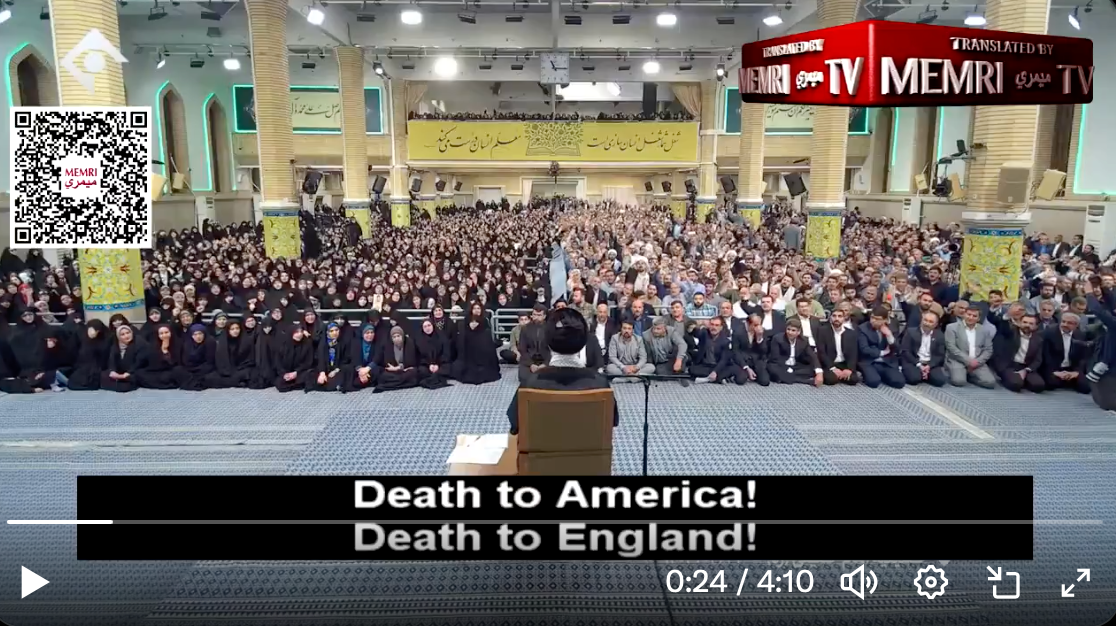A resurfaced video shared on social media platform X by user @PersianJewess has reignited global attention to Iran’s long-standing anti-Western rhetoric. The clip, originally from MEMRI TV, features Iranian leadership—likely Supreme Leader Ayatollah Ali Khamenei—leading chants of “Death to America,” “Death to England,” and “Death to Israel.” These slogans, which have echoed through Iranian politics since the 1979 Islamic Revolution, continue to symbolize Tehran’s ideological opposition to Western powers.
The reemergence of the footage comes at a time of heightened tensions and military confrontation between Israel and Iran. In early June 2025, Israel reportedly launched a series of targeted airstrikes on Iranian nuclear facilities, aiming to cripple Tehran’s ability to enrich uranium to weapons-grade levels. Intelligence sources estimate that prior to the strikes, Iran had amassed enough fissile material for up to 15 nuclear bombs, significantly escalating the threat perception in the region.
Iran has since responded with a wave of ballistic missile attacks targeting Israeli military installations and urban centers, sparking a fierce exchange of firepower. Israel’s Iron Dome and David’s Sling defense systems have intercepted several incoming projectiles, but reports indicate both sides have suffered casualties and infrastructure damage.
The current escalation follows years of deteriorating relations between Iran and the West, particularly after the U.S. withdrawal from the 2015 Joint Comprehensive Plan of Action (JCPOA) in 2018. Since then, Iran has resumed and accelerated its nuclear enrichment activities, drawing repeated warnings from the International Atomic Energy Agency (IAEA) and international observers.
The flashback video not only underscores Iran’s enduring revolutionary ideology but also serves as a stark reminder of the deep-rooted animosity fueling today’s military hostilities. The chant, long dismissed by some as symbolic posturing, now resonates against the backdrop of real-time warfare, raising concerns of a broader regional conflict.
Israeli Prime Minister Yoav Gallant has reiterated his government’s stance: “We will not allow the Iranian regime—who openly calls for our destruction—to possess nuclear weapons. We will act decisively to ensure our nation’s safety.”
Meanwhile, Iran’s Revolutionary Guard has vowed “resistance and retaliation,” declaring that Israeli aggression will be “met with fire across all fronts,” fueling fears of proxy escalations through Hezbollah in Lebanon and Shiite militias in Iraq and Syria.
As both nations trade missiles and threats, diplomatic efforts to de-escalate remain limited. International calls for restraint are growing, but with old wounds reopened and nuclear stakes higher than ever, the path to peace appears increasingly uncertain.

